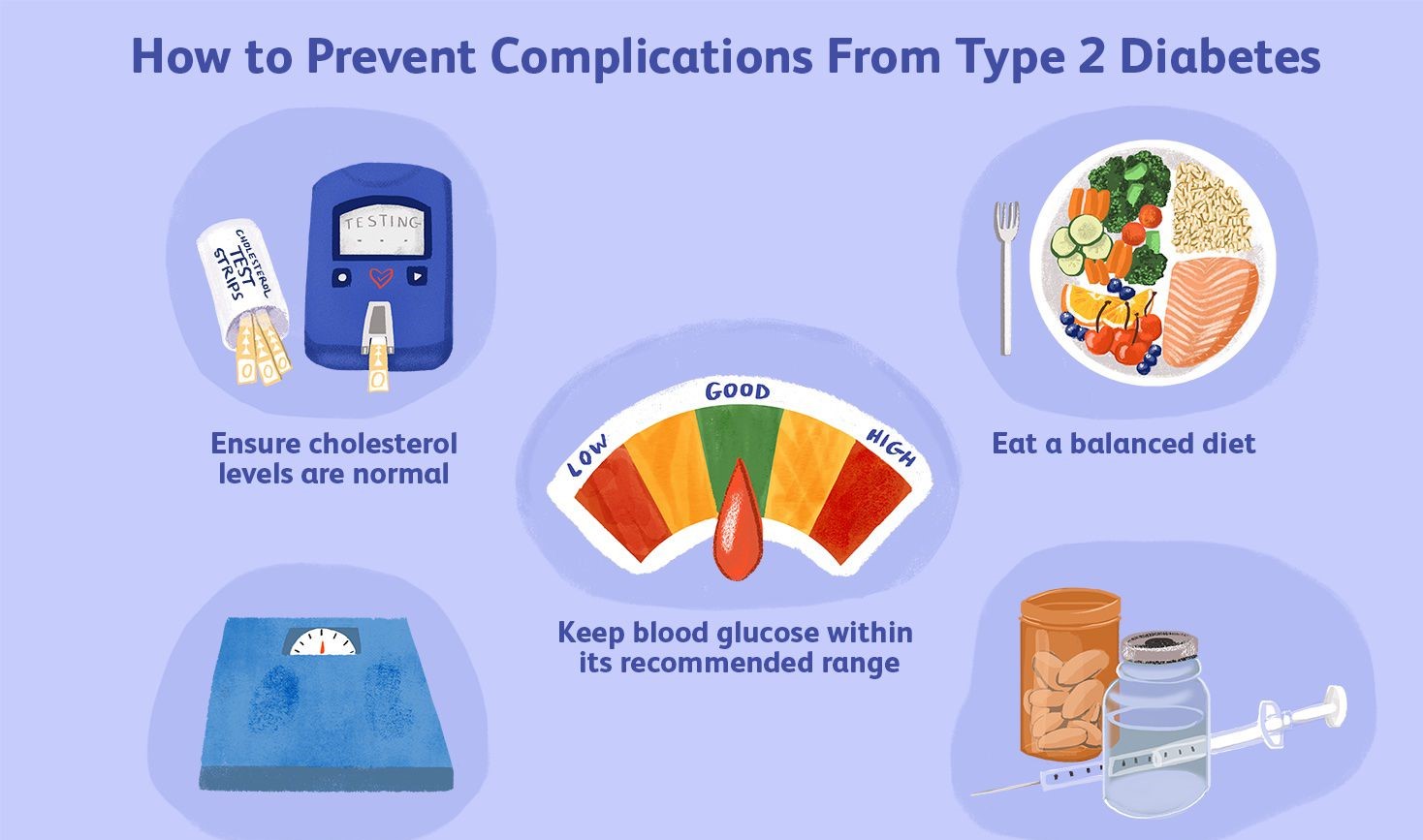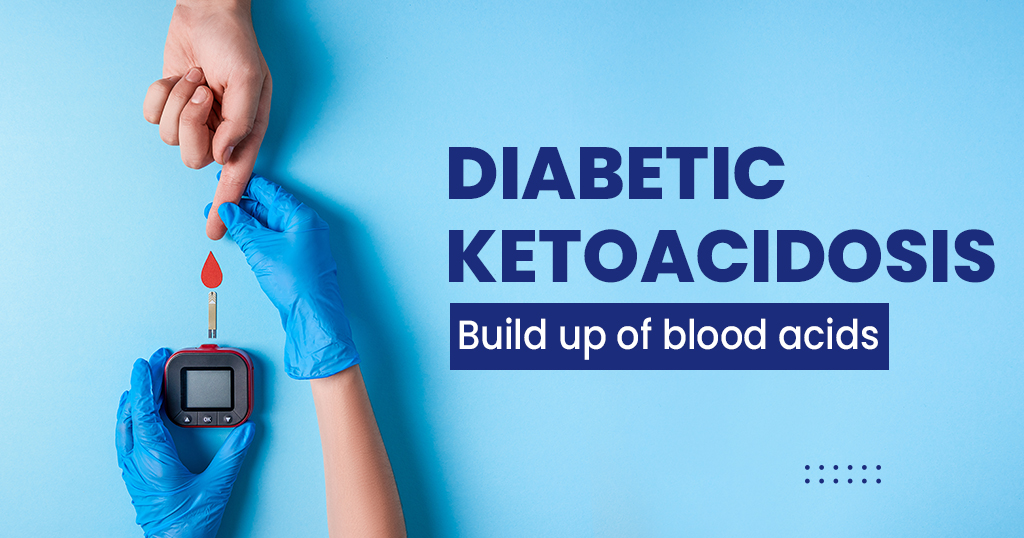Preventing Complications from Type 2 Diabetes: Essential Strategies for Better Health
Type 2 diabetes is a chronic condition characterized by high blood sugar levels, which can lead to various complications if left unmanaged. However, the good news is that by making proactive choices and adopting healthy lifestyle habits, individuals with type 2 diabetes can significantly reduce the risk of developing complications. In this blog post, we will explore key strategies for preventing complications from type 2 diabetes, empowering you to take control of your health and well-being.
Maintain Healthy Blood Sugar Levels
The cornerstone of preventing complications from type 2 diabetes is to keep your blood sugar levels within a target range. This involves regular monitoring of blood glucose, adherence to prescribed medications, and, if necessary, insulin therapy. Work closely with your healthcare team to develop an individualized plan that suits your needs, and follow it diligently.
Adopt a Balanced and Nutritious Diet
A healthy diet plays a crucial role in managing type 2 diabetes and preventing complications. Focus on consuming nutrient-dense foods such as fruits, vegetables, whole grains, lean proteins, and healthy fats. Limit your intake of sugary beverages, processed foods, and foods high in saturated and trans fats. Consider working with a registered dietitian to create a personalized meal plan that supports your diabetes management goals.
Engage in Regular Physical Activity
Physical activity offers numerous benefits for individuals with type 2 diabetes. It helps improve insulin sensitivity, manage weight, lower blood sugar levels, and reduce the risk of cardiovascular complications. Aim for at least 150 minutes of moderate-intensity aerobic exercise, such as brisk walking or cycling, per week. Additionally, incorporate strength training exercises to enhance muscle strength and overall fitness.
Maintain a Healthy Weight
Achieving and maintaining a healthy weight is important for diabetes management and reducing the risk of complications. Losing excess weight, even a modest amount, can improve blood sugar control and overall health. Focus on a gradual and sustainable weight loss approach, combining dietary changes, physical activity, and behavioral modifications. Consult with a healthcare professional or a registered dietitian for personalized guidance.
Monitor Blood Pressure and Cholesterol Levels
High blood pressure and abnormal cholesterol levels are common complications associated with type 2 diabetes. Regularly monitor these parameters and work with your healthcare provider to manage them effectively. Lifestyle modifications, such as adopting a low-sodium diet, reducing stress, and regular exercise, can help control blood pressure. Additionally, a heart-healthy diet and medication, if prescribed, can help manage cholesterol levels.
Quit Smoking and Limit Alcohol Consumption
Smoking and excessive alcohol consumption can significantly increase the risk of complications for individuals with type 2 diabetes. Quitting smoking is crucial for better cardiovascular health and overall well-being. Similarly, limit alcohol intake to moderate levels (up to one drink per day for women and up to two drinks per day for men) or consider eliminating it altogether, depending on your specific circumstances.
Regularly Attend Medical Check-ups
Routine medical check-ups are essential for monitoring your diabetes management and identifying any potential complications at an early stage. Stay up to date with screenings for eye health, kidney function, foot care, and other recommended tests. Collaborate with your healthcare team to establish a schedule for regular check-ups and ensure all aspects of your health are monitored effectively.
Type 2 Diabetes Before Age 60 Increases Dementia Risk by 300%, Study Finds
Manage Stress Levels
Chronic stress can have a negative impact on blood sugar control and overall health. Find healthy ways to manage stress, such as practicing relaxation techniques, engaging in hobbies, spending time with loved ones, or seeking professional support. Incorporating stress management techniques into your daily routine can help reduce the risk of complications and promote overall well-being.
Take Care of Your Feet
Individuals with type 2 diabetes are more susceptible to foot complications. Inspect your feet daily for any signs of cuts, blisters, or infections. Keep your feet clean and moisturized, wear comfortable and well-fitting shoes, and avoid walking barefoot. Regularly visit a podiatrist for foot examinations, especially if you have any concerns.
Stay Hydrated
Proper hydration is essential for overall health and diabetes management. Drink an adequate amount of water throughout the day to prevent dehydration, support kidney function, and help maintain stable blood sugar levels. Limit sugary drinks and opt for water as your primary beverage choice.
Get Vaccinated
Individuals with type 2 diabetes have a higher risk of certain infections, such as influenza (flu) and pneumococcal disease. Stay up to date with recommended vaccinations, including an annual flu shot and the pneumococcal vaccine. Vaccinations can help prevent illness and reduce the risk of complications.
Seek Support and Education
Living with type 2 diabetes can be challenging, but you don’t have to face it alone. Seek support from friends, family, or support groups who understand your journey. Additionally, consider participating in diabetes education programs or working with a diabetes educator to expand your knowledge about the condition, learn self-management skills, and stay motivated.
Preventing complications from type 2 diabetes requires a comprehensive approach that includes healthy lifestyle choices, diligent blood sugar management, and regular healthcare monitoring. By following these strategies and working closely with your healthcare team, you can significantly reduce the risk of complications, improve your quality of life, and maintain better overall health. Remember, small changes can make a big difference, and every step you take towards prevention is an investment in your well-being.












